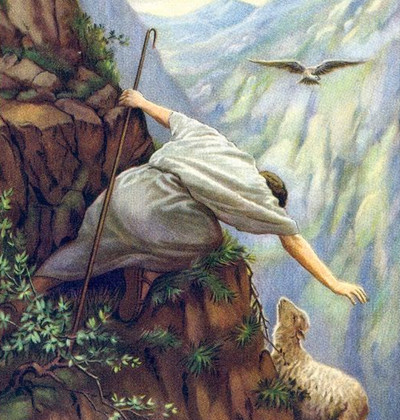There was a news item a while back reporting how the transit authority of a Connecticut town had asked its patrons to help them improve the services they were giving. They asked folks who used their transit system on a daily basis to use their cell phone cameras to document deteriorating facilities, graffiti and other inoperable systems or unacceptable conditions, and to forward them to their main offices so that they could work to provide better service and better conditions for everyone involved. They wanted their patrons to feel that they had valuable input and a stake in making their transit system the best in the area. After all, who would have a better knowledge of “daily life on the rails” than those who rode the trains day after day?
 I can't help but wonder what might become of the Church if our leadership would take up the same challenge, and honestly ask our Catholic people to collaborate more fully with them in an effort to improve the life of the community. I am not so naïve as to think that something like this could ever happen, however even if we wanted to avoid reflecting on today's first reading, the issue of God indicting the shepherds of the flock will not allow us to do so.
I can't help but wonder what might become of the Church if our leadership would take up the same challenge, and honestly ask our Catholic people to collaborate more fully with them in an effort to improve the life of the community. I am not so naïve as to think that something like this could ever happen, however even if we wanted to avoid reflecting on today's first reading, the issue of God indicting the shepherds of the flock will not allow us to do so.
The warning of Jeremiah, speaking on behalf of God, bemoans the "shepherds who mislead and scatter the flock of my pasture." The "shepherds" to whom Jeremiah is referring are Israel's rulers - the nation's rulers, along with the priests and prophets, who were supposed to play a role in helping the nation fulfill its vocation as God's people. Yahweh had carefully and lovingly shepherded Israel and Judah. But those whose duty it was to be His instruments were, for the most part, a huge disappointment.
Without good and righteous leadership, the very covenant between God and the people had suffered. These rulers had not, as God wished, protected the frail and powerless. Poor leadership had brought disaster to the nation, for when Jeremiah was writing these words, the Babylonian captivity had already begun. Eventually, the royal line would end and the nation would be taken into exile. Before it was over, Jerusalem and its temple would lie in ruins.
When religious leadership is disjointed and defective, when our public discourse on the economy, gun violence, immigration, health care, systemic racism, xenophobia, sexual orientation, and poverty sinks to name-calling, vilifying and finger-pointing, the consequences for ordinary people are disastrous. And when even the Eucharist becomes the point of fracture and division, rather than the source of unity and the summit of our lives, it becomes easy for us to feel that we are alone in a desert, devoid of civility, searching the horizon for a path to moral leadership.
The Catholic Church today seems to be infected with the perennial virus of a people in transition: loss of perspective and disunity. Unfortunately, we know a lot about the agony of polarization, of being scattered, of discontinuity and the turbulence of crisis. Crisis has always triggered the best of Christian reflection. The experience of change, of suffering, of hopes uncertain, can force us to dig deep into our tradition and to discover its power anew.
But our community desperately needs healing and renewal. Each of us must play a part in this moment's potential for growth, by finding ways to speak to one another in His name for the good of the community. For only He can heal and renew what has been so wounded in His church. Only He can help us face what divides and destroys our communal bonds. Only He can feed us and heal us so that we can face what assails our church, be witnesses to hope and continue to preach, teach and heal as He did. Catholic leaders who inspire us are always the ones living the Gospel every day rather than reading it from the pulpit on Sunday.
This is our mission as well. Evil hurts us and scandal shocks us, but these have no authority over our power for goodness and communion. And it is precisely our commitment and our fight for goodness, enriched by love and guided by virtuous leadership, that empowers us to acknowledge weakness, dwell in hope, and accept the greater purpose of our lives and of our faith in Jesus Christ.
As we continue on in these unsettled times, we will see even more clearly that being a disciple - being a shepherd - is not about "religion," with its doctrines and rules and traditions; it is, above all else, about human life and relationship. This is, after all, what "communion" really means.





